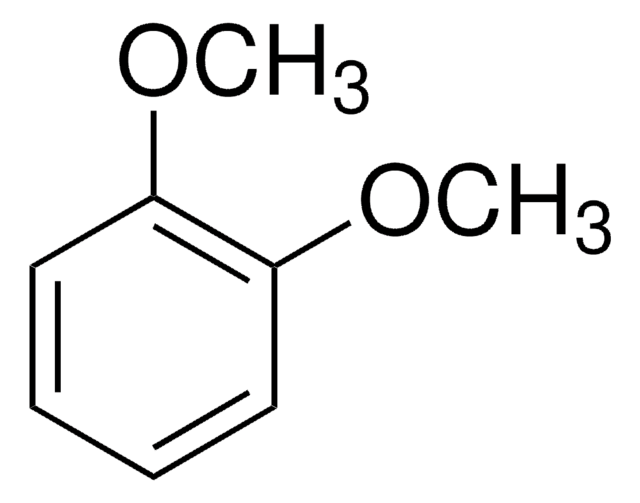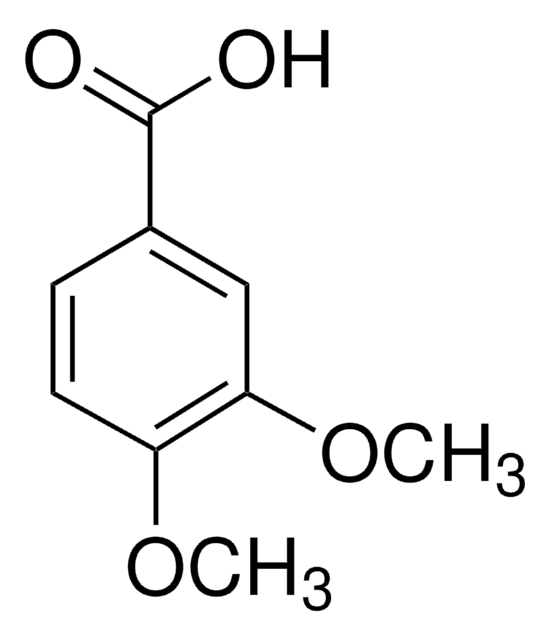140155
1,2-Dimethoxybenzene
ReagentPlus®, 99%
Synonym(s):
Pyrocatechol dimethyl ether, Veratrole
About This Item
Recommended Products
product line
ReagentPlus®
Assay
99%
refractive index
n20/D 1.533 (lit.)
bp
206-207 °C (lit.)
mp
15 °C (lit.)
solubility
alcohol: soluble
diethyl ether: soluble
fatty oils: soluble
water: slightly soluble
density
1.084 g/mL at 25 °C (lit.)
SMILES string
COc1ccccc1OC
InChI
1S/C8H10O2/c1-9-7-5-3-4-6-8(7)10-2/h3-6H,1-2H3
InChI key
ABDKAPXRBAPSQN-UHFFFAOYSA-N
Looking for similar products? Visit Product Comparison Guide
General description
Application
Legal Information
Signal Word
Warning
Hazard Statements
Hazard Classifications
Acute Tox. 4 Oral
Storage Class Code
10 - Combustible liquids
WGK
WGK 1
Flash Point(F)
161.6 °F - closed cup
Flash Point(C)
72 °C - closed cup
Personal Protective Equipment
Certificates of Analysis (COA)
Search for Certificates of Analysis (COA) by entering the products Lot/Batch Number. Lot and Batch Numbers can be found on a product’s label following the words ‘Lot’ or ‘Batch’.
Already Own This Product?
Find documentation for the products that you have recently purchased in the Document Library.
Our team of scientists has experience in all areas of research including Life Science, Material Science, Chemical Synthesis, Chromatography, Analytical and many others.
Contact Technical Service




